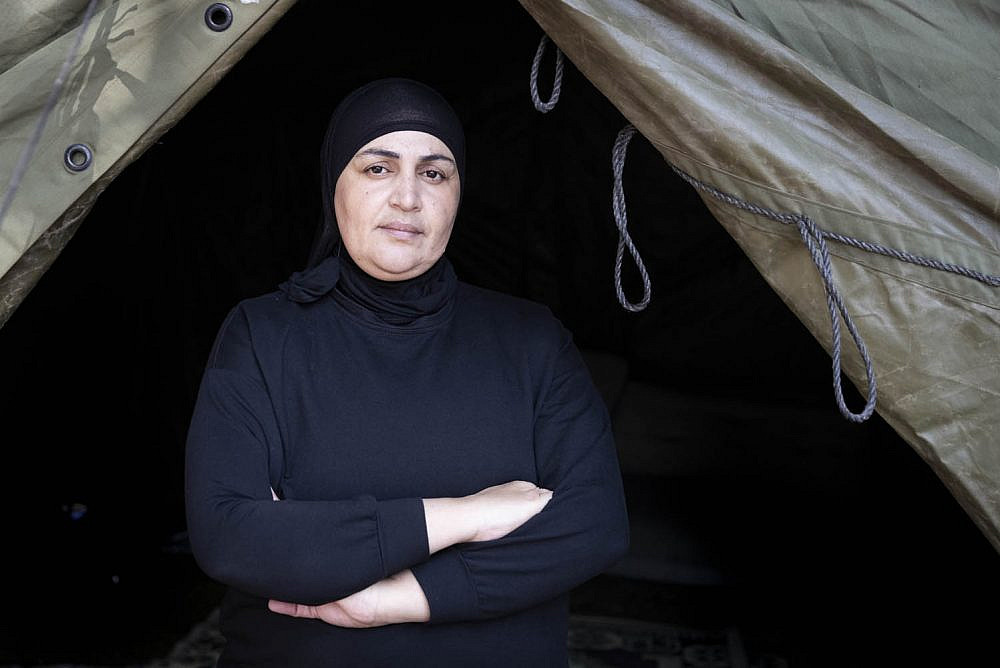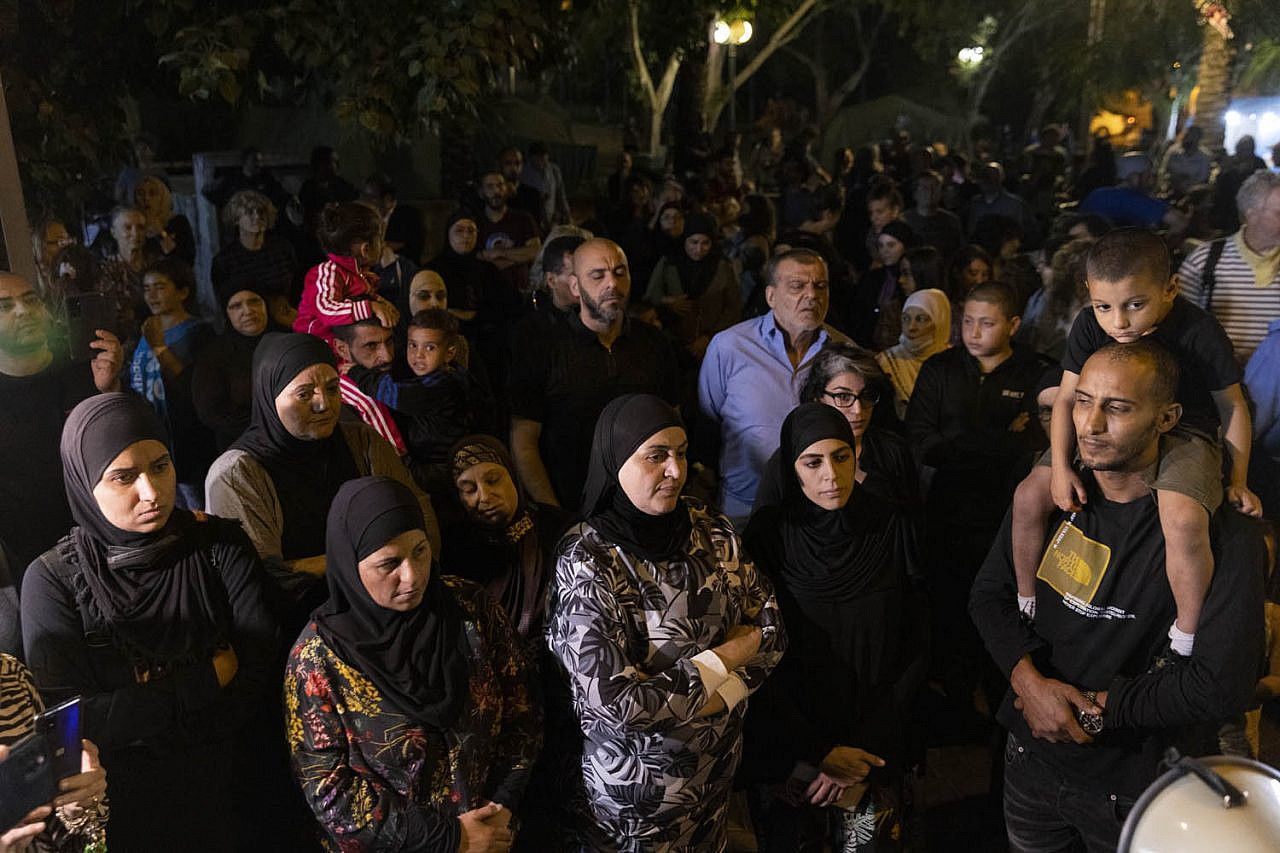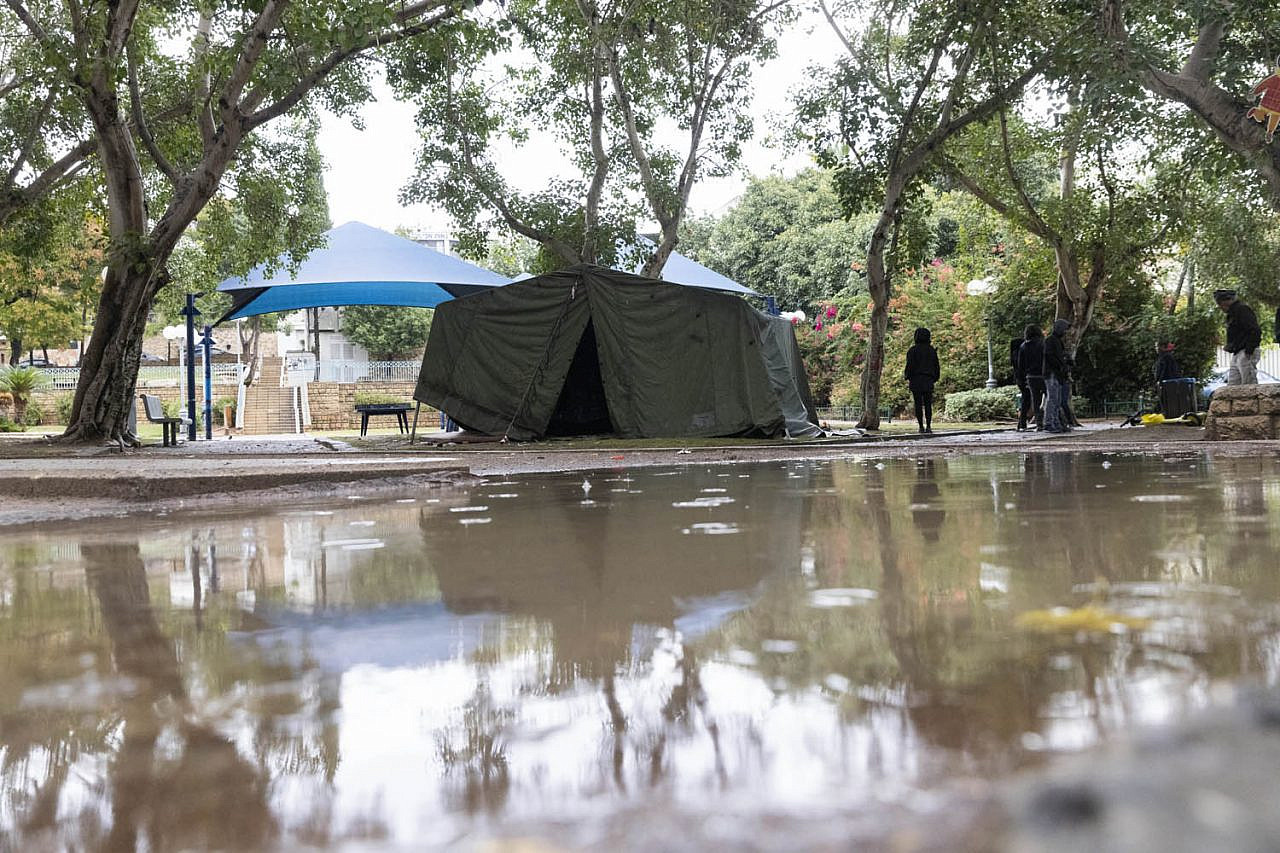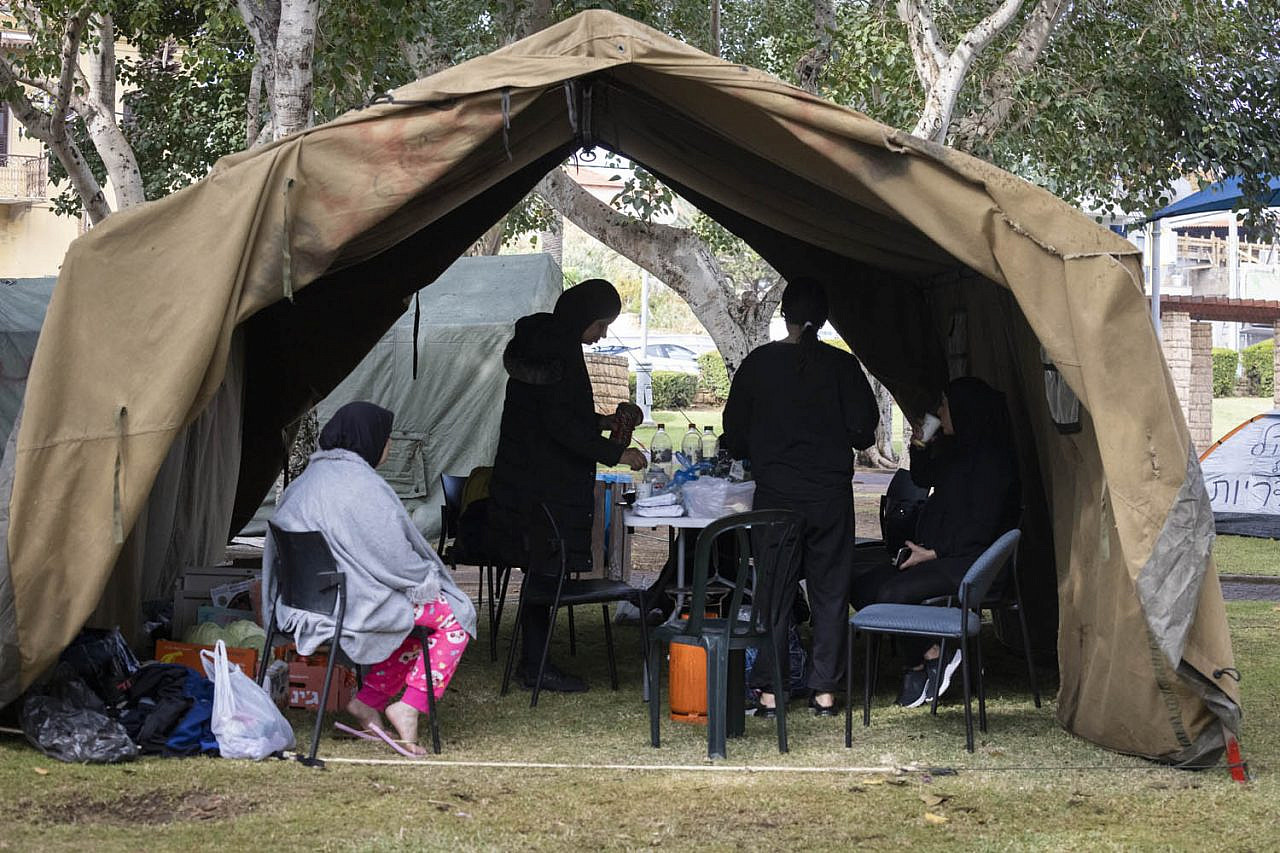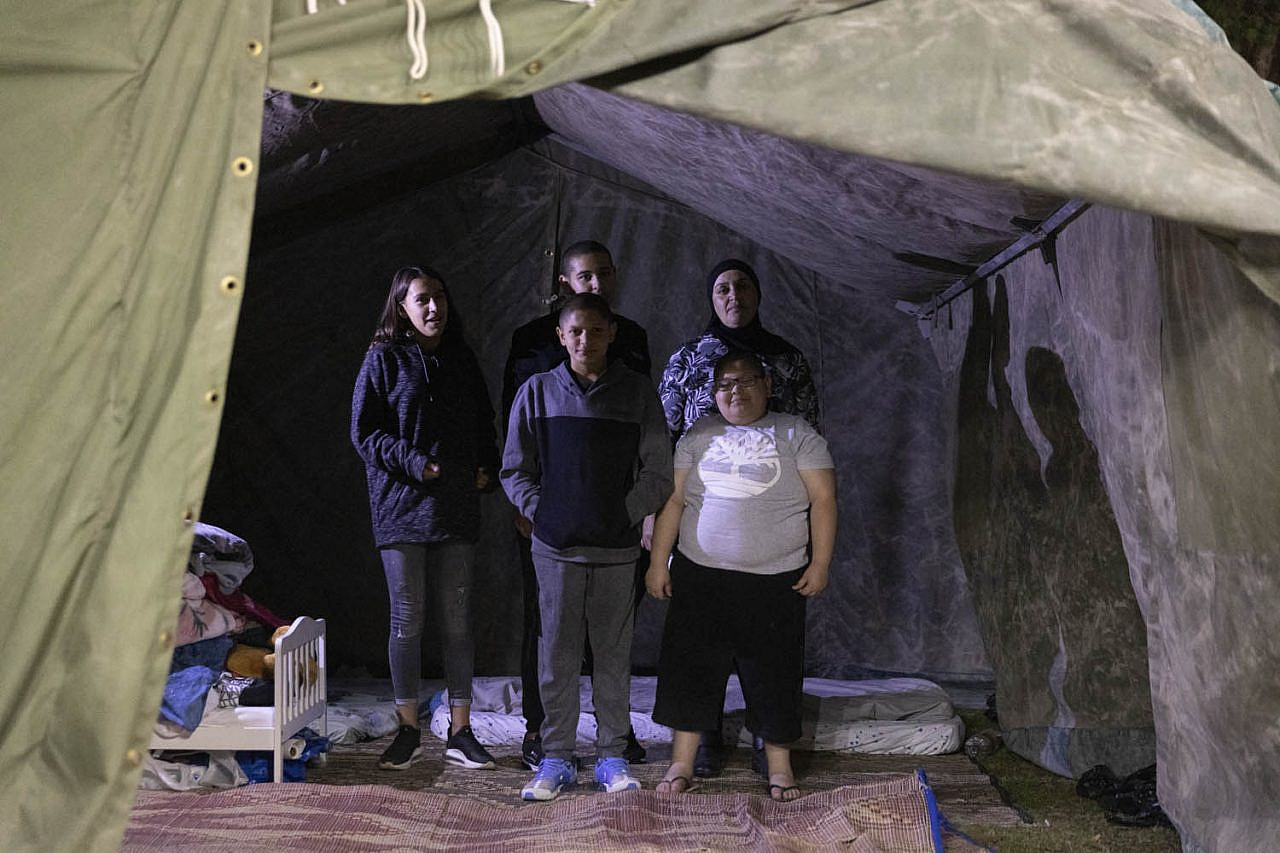A Brief Colonial History Of Ceylon(SriLanka)
Sri Lanka: One Island Two Nations
A Brief Colonial History Of Ceylon(SriLanka)
Sri Lanka: One Island Two Nations
(Full Story)
Search This Blog
Back to 500BC.
==========================
Thiranjala Weerasinghe sj.- One Island Two Nations
?????????????????????????????????????????????????Monday, November 29, 2021
PHOTOS: A Palestinian single mother sparks protest camp over Jaffa gentrification
Years of state neglect and rising prices mean Palestinian families can no longer afford rent in their own city. Protesters have set up tents to demand solutions.
Farida Najar, a Palestinian single mother of four, seen outside her tent, which she erected in a public park in Jaffa in protest of racialized gentrification and rising rents in the city, November 17, 2021. (Oren Ziv)
Farida Najar has been waiting to receive public housing in Jaffa for four years. But the Palestinian single mother of four can no longer afford the rising rents in the city she was born and raised in. Last week, she moved her family into a tent at a public park, in protest of the racialized gentrification that she says is pushing Palestinian residents out of Jaffa.
“I moved to live in a tent because I don’t have a house to live in,” Najar told +972 Magazine. “All I want is an apartment. The state wants to make us leave to other cities like Lydd or Ramla. This is a racist policy, and we won’t stay silent about it.”
Days after Najar set up her tent, other single mothers facing similar challenges began to join her. By Wednesday, the small park on Yefet street was filled with tents.
At first, the 10 families insisted on staying in the park with their children, despite the municipal eviction order issued against their camp. Not even heavy rains deterred them. Dozens of Palestinian and Israeli protesters attended vigils throughout the week to support the single mothers’ struggle, including MKs Ayman Odeh, Sami Abu Shehadeh, and Ofer Cassif.
But after a Sunday meeting with the Mishlama, the local branch of the Tel Aviv municipality that deals with issues concerning Jaffa’s residents, some of the families agreed to leave the park immediately in exchange for social and financial aid — though they were not offered permanent housing solutions. By Monday, at least six of the women signed what they described as “better agreements,” and left the protest camp.
Dozens of protesters seen at a vigil in support of a group of single mothers who erected tents in protest of racialized gentrification and rising rents in the city, Jaffa, November 17, 2021. (Oren Ziv)
The women who decided to stay, including Najar, moved to sleep in the park’s public shelter, after municipal officers arrived to remove any remaining equipment Tuesday morning.
“The protest camp was erected by families from Jaffa, mostly single mothers, who are experiencing real hardship as a result of years of neglect in the government’s public housing policy,” a Tel Aviv-Jaffa spokesperson told +972 Magazine. “The tents were willingly taken down, following dialogue between the women, the Jaffa Acting Committee, and representatives from the municipality, the goal of which was to find solutions for the families and end the protest in a respectful, nonviolent manner.”
A group of single mothers erected tents at a public park in Jaffa, in protest of racialized gentrification and rising rents in the city, November 20, 2021. (Oren Ziv)
The spokesperson added that representatives from the municipal welfare services and the Jaffa Acting Committee will be meeting with the women every couple of weeks to follow up on their cases.
“Every protest is legitimate, and the municipality encourages residents to actively participate in the democratic game. With that, setting up a camp in a public space has a time limit, regardless of the legitimacy of the cause,” the spokesperson added.
Even though the families are eligible for public housing, years of flawed policies have made it almost impossible to secure an affordable apartment in the city. The subsidies that they receive from the state in the meantime are not enough to cover rent in Jaffa, they said.
A group of single mothers erected tents at a public park in Jaffa, in protest of racialized gentrification and rising rents in the city, November 19, 2021. (Oren Ziv)
The shortage in available public housing apartments in Tel Aviv in general, and specifically in Jaffa, means families often wait for years before securing affordable housing. According to a state comptroller report from 2019, people who are eligible for public housing had to wait 31 months on average to receive an apartment, and in central Israel the waiting time can be even longer.
“Our parents had debts and couldn’t help us, and now we can’t help our children,” Najar lamented.
One of the women who joined Najar is Fatima, a mother of four, who preferred not to publish her last name. “We are 8 families with 27 children, we live as one big family,” she said. “We are here because we don’t have a roof to live under with our children. The rent is expensive in Jaffa, and the assistance we get from the state does not allow us to live in dignity.”
Farida Najar, a Palestinian single mother of four, seen with her children inside the tent she erected in a public park in Jaffa, in protest of racialized gentrification and rising rents in the city, November 17, 2021. (Oren Ziv)
“At first, the children thought we went camping, but after a few days it became hard for them,” Fatima continued. “With the rain, they are tired, but we will stay here till we receive our rights.”
The housing crisis that Palestinian citizens face in Jaffa has a wider historical context. After the 1948 Nakba, the Palestinian residents who remained in Jaffa were concentrated in the Ajami and Jabalia neighborhoods, where many received “protected status” as tenants in houses they owned, or that belonged to Palestinian families who became internally displaced or refugees. Those houses were registered as “absentee” properties, which were eventually transferred to the state’s Development Authority.
In recent years, luxury projects have dominated the coastal city’s landscape, and public housing companies have been selling the buildings to private investors. This has made it even harder for local Palestinian residents to rent or buy property in Jaffa.
IN PHOTOS: First Woman Basketball Referee in the Gaza Strip
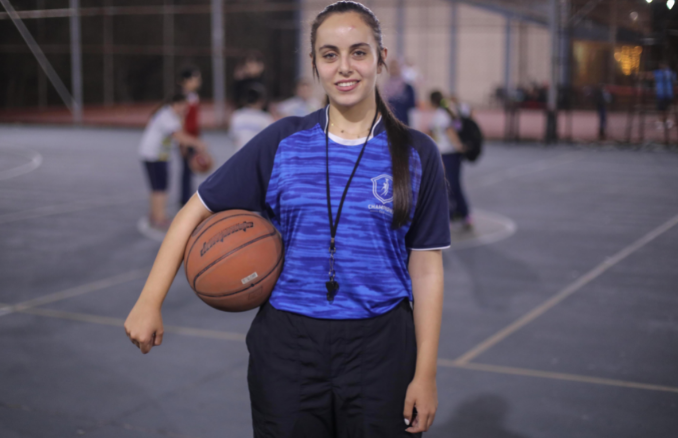
Amira Ismail, 23, is the first woman basketball referee in Gaza. (All photos: Mahmoud Ajjour, The Palestine Chronicle)
By Amira Ismail-November 25, 2021
My name is Amira Ismail. I am 23 years old. I hold a pharmacy degree from Al-Azhar University. Since I was little, I fell in love with basketball. It was my first love.
I played basketball throughout my high school years. When I reached the university, I began receiving training at the Basketball Academy. Then, I moved to the Champions’ Club, which I now consider like my second home.
Last August, I received my certification from the International Basketball Federation (FIBA) to become an international referee. I had to pass several exams to be awarded this certificate.
This is very important to me. I am the first girl that receive such a certificate for basketball in the Gaza Strip. I will soon be able to become a ref in games, not only the ones played by women but by men, too. This will not be easy in Gaza, but I deserve to be given this opportunity and to do the job that I love doing.
I hope that more women in Gaza will have similar opportunities so that we will help the new generation of basketball players, in fact in all sports, to reach their potential. Women must be present in all kinds of sports, in fact, in all areas of professional life.
I am happy and proud to be a woman referee in Gaza, but hopefully soon, I will not be the only one.
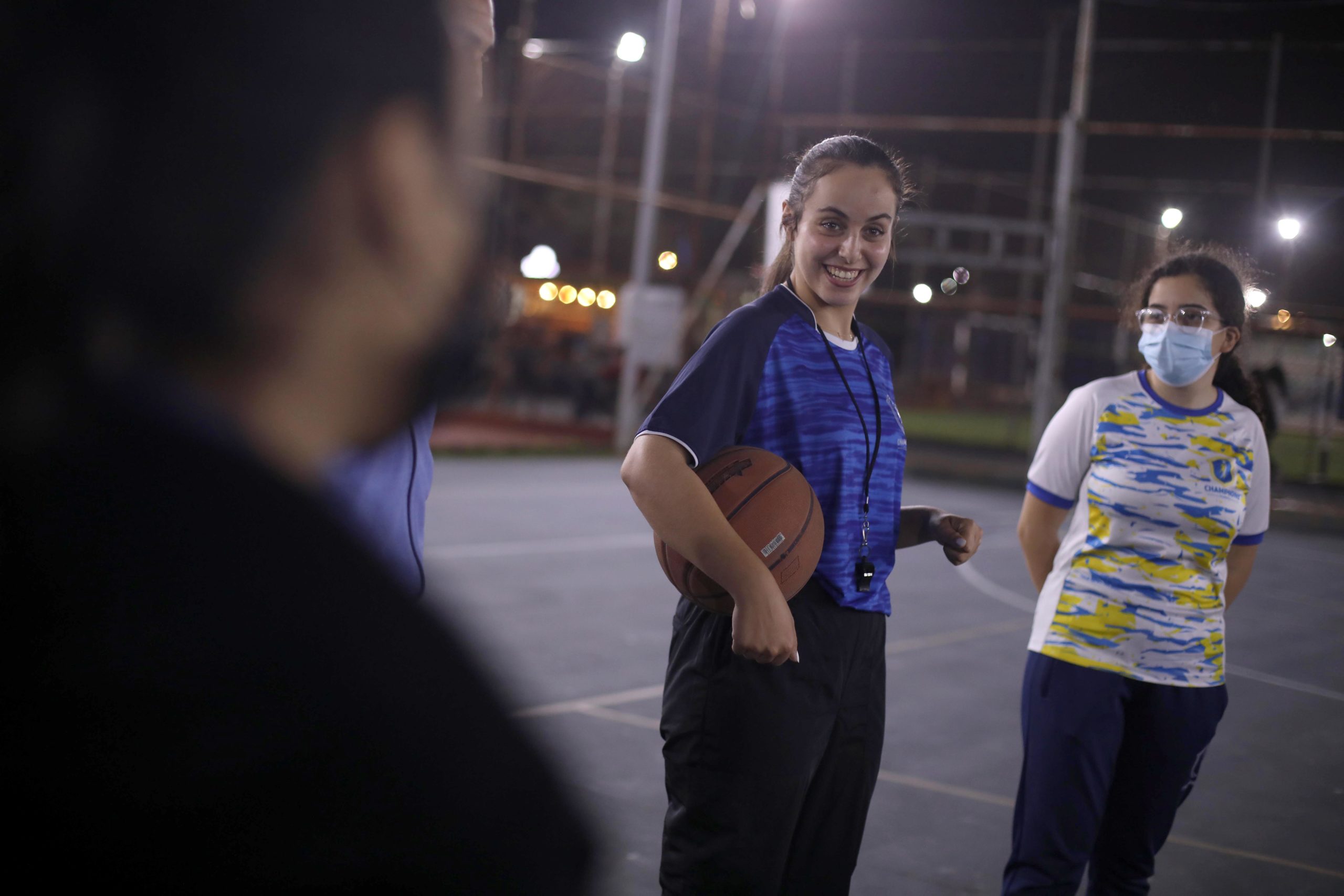
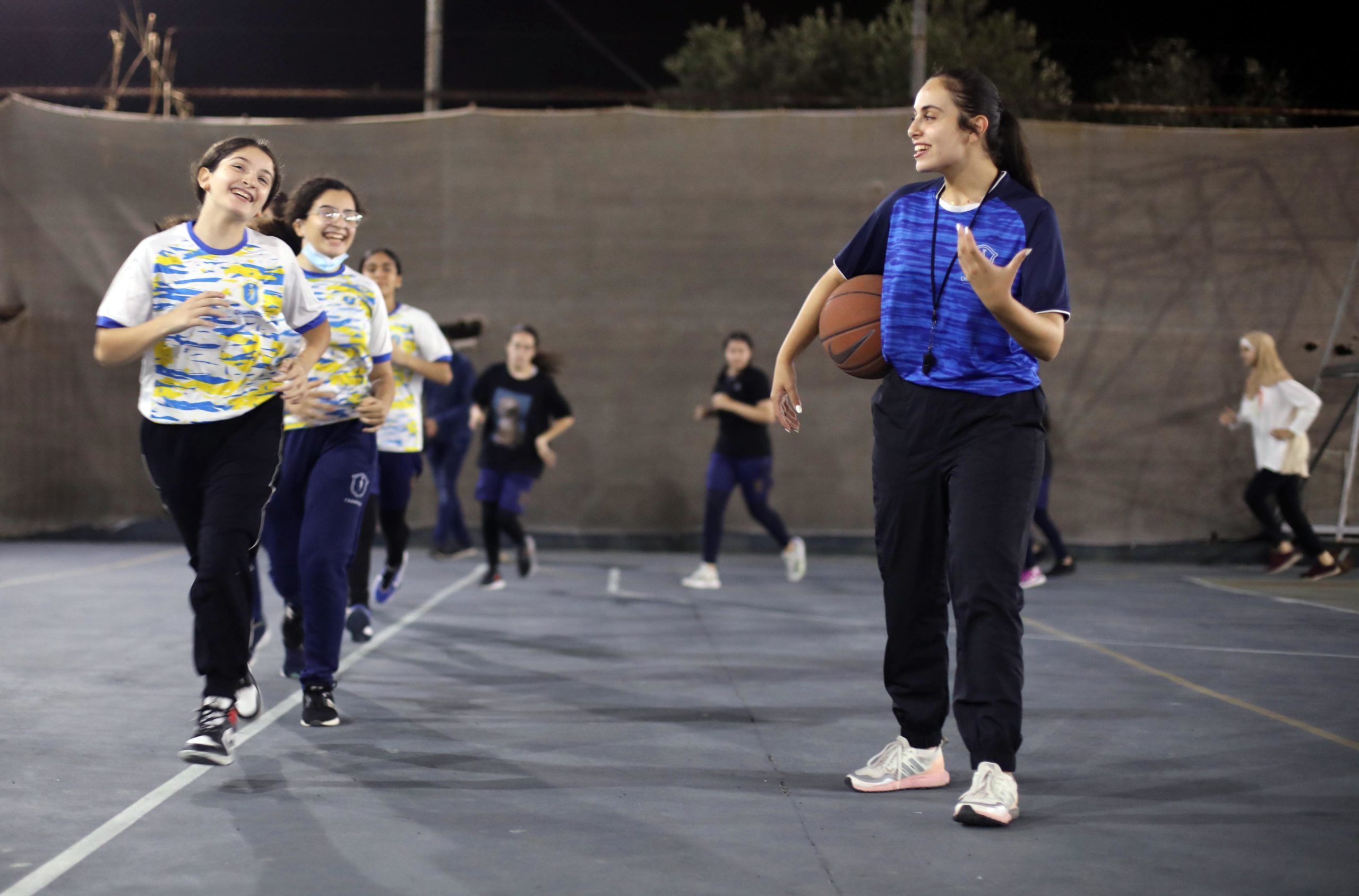
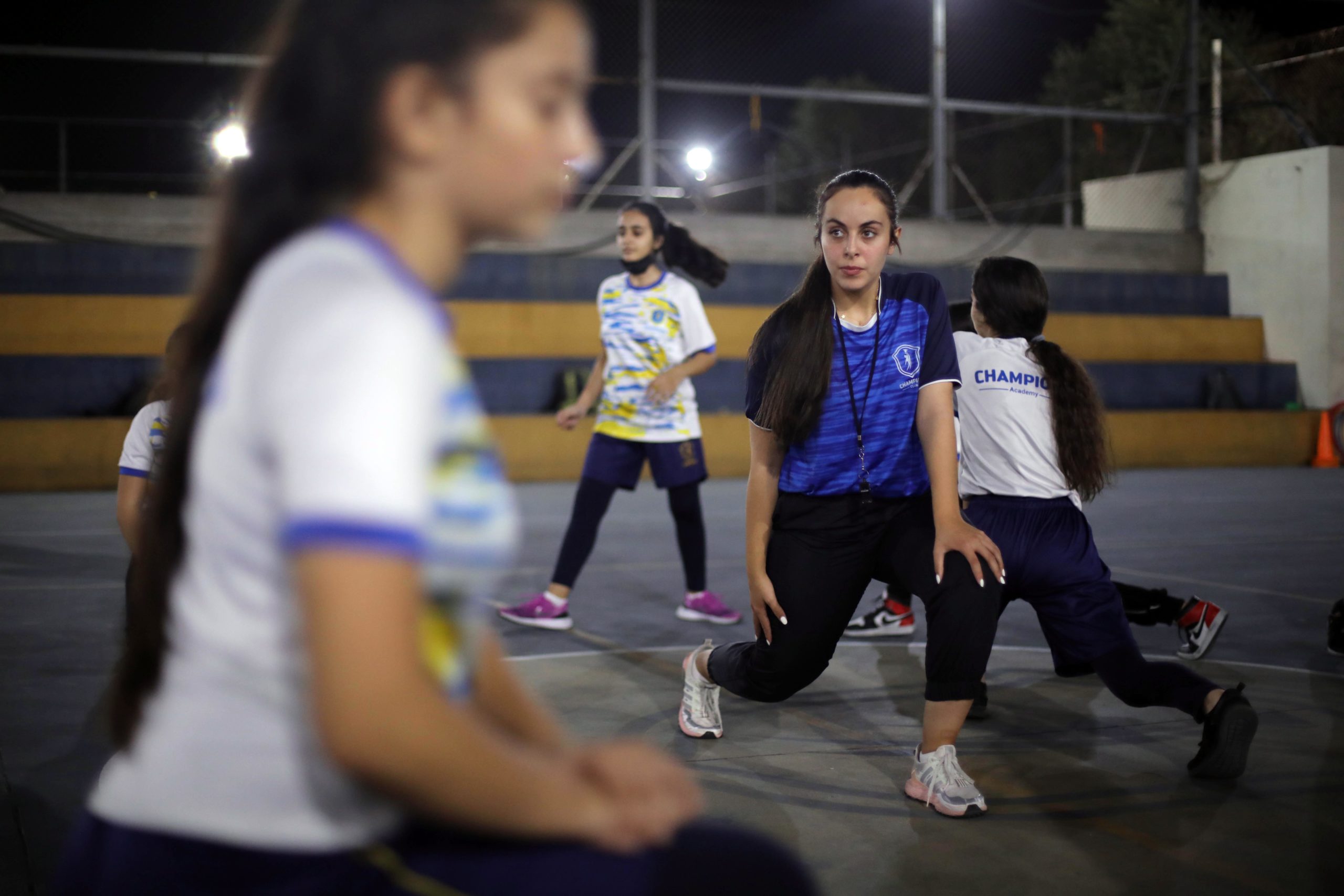
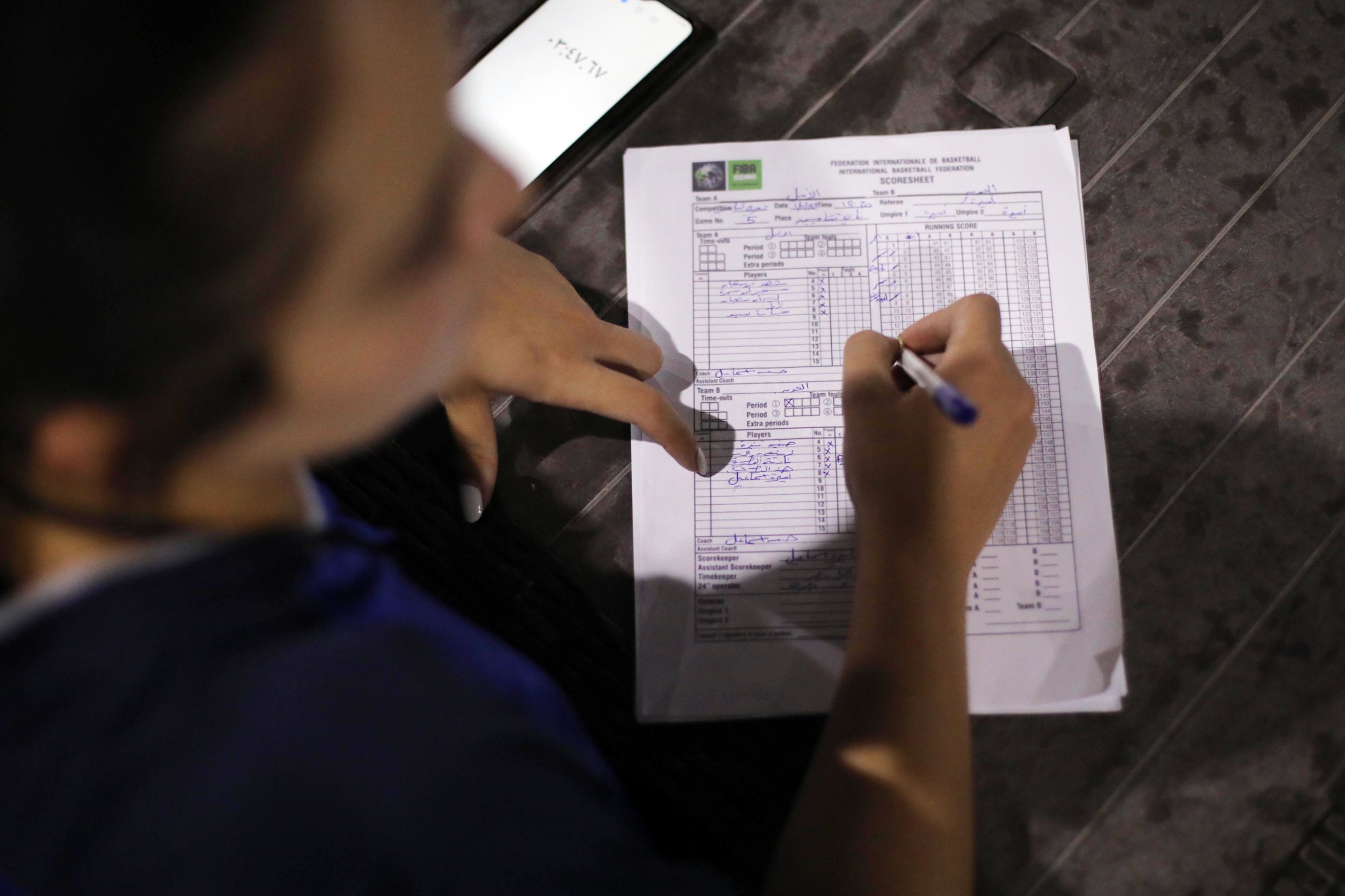
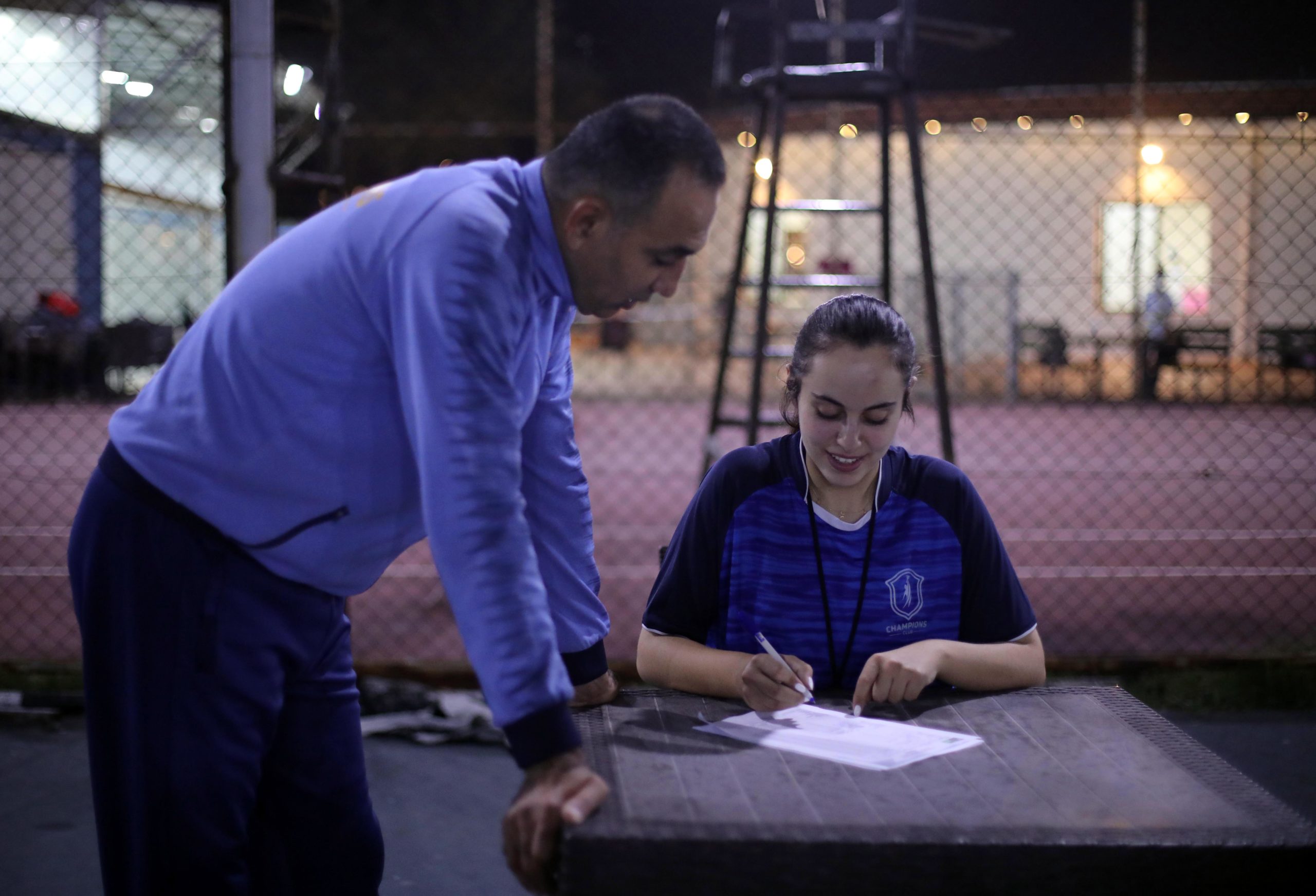
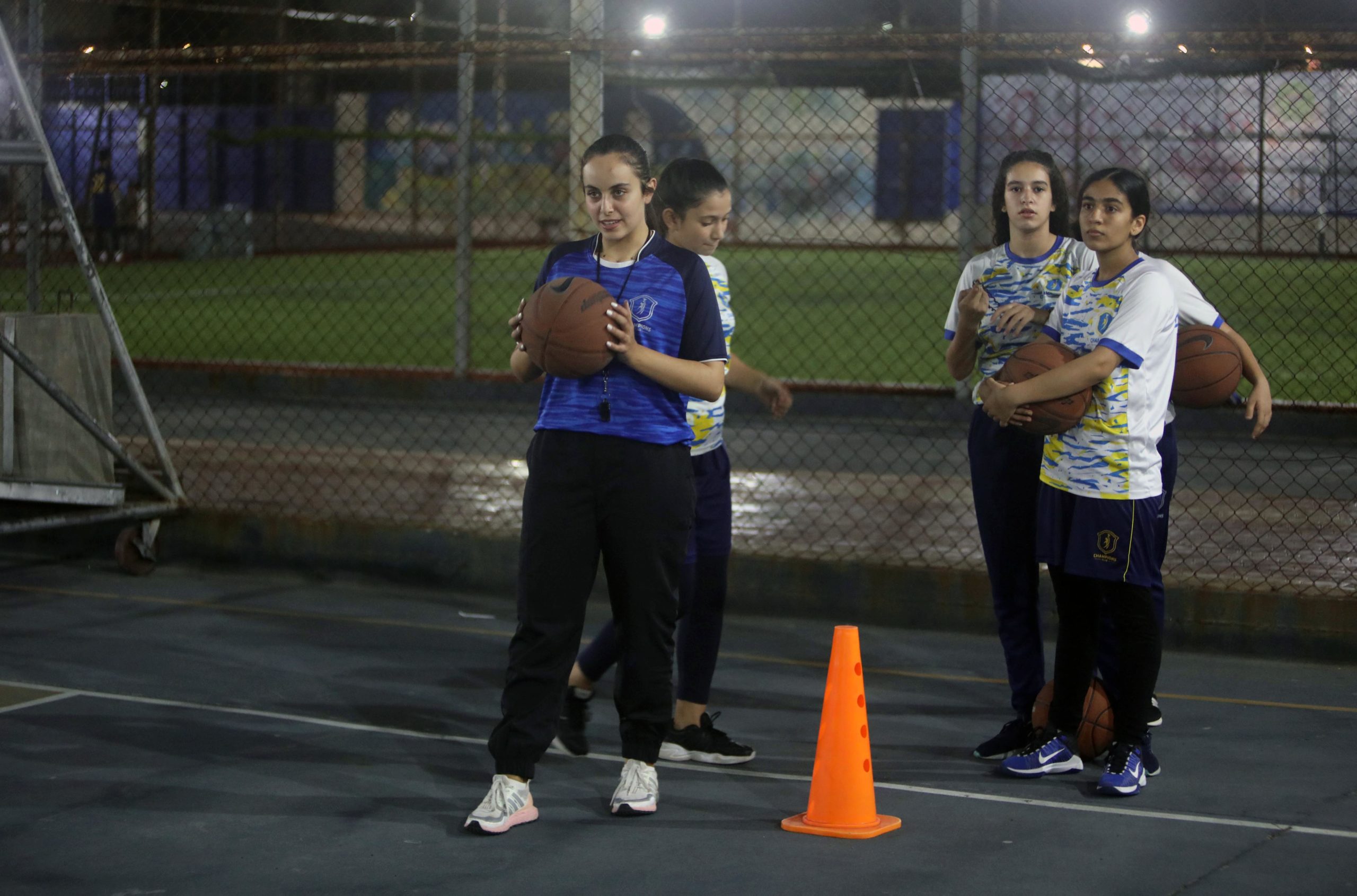
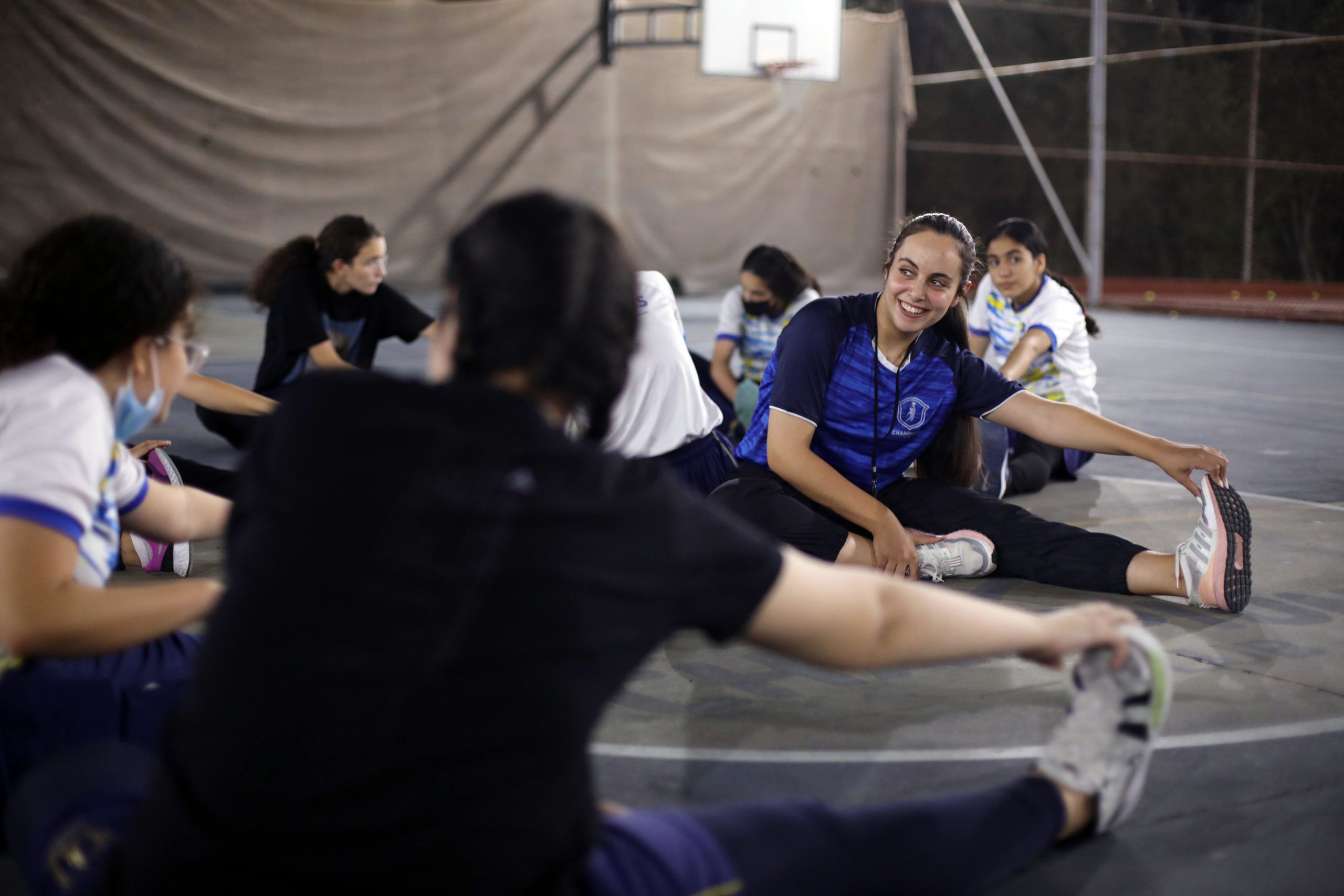

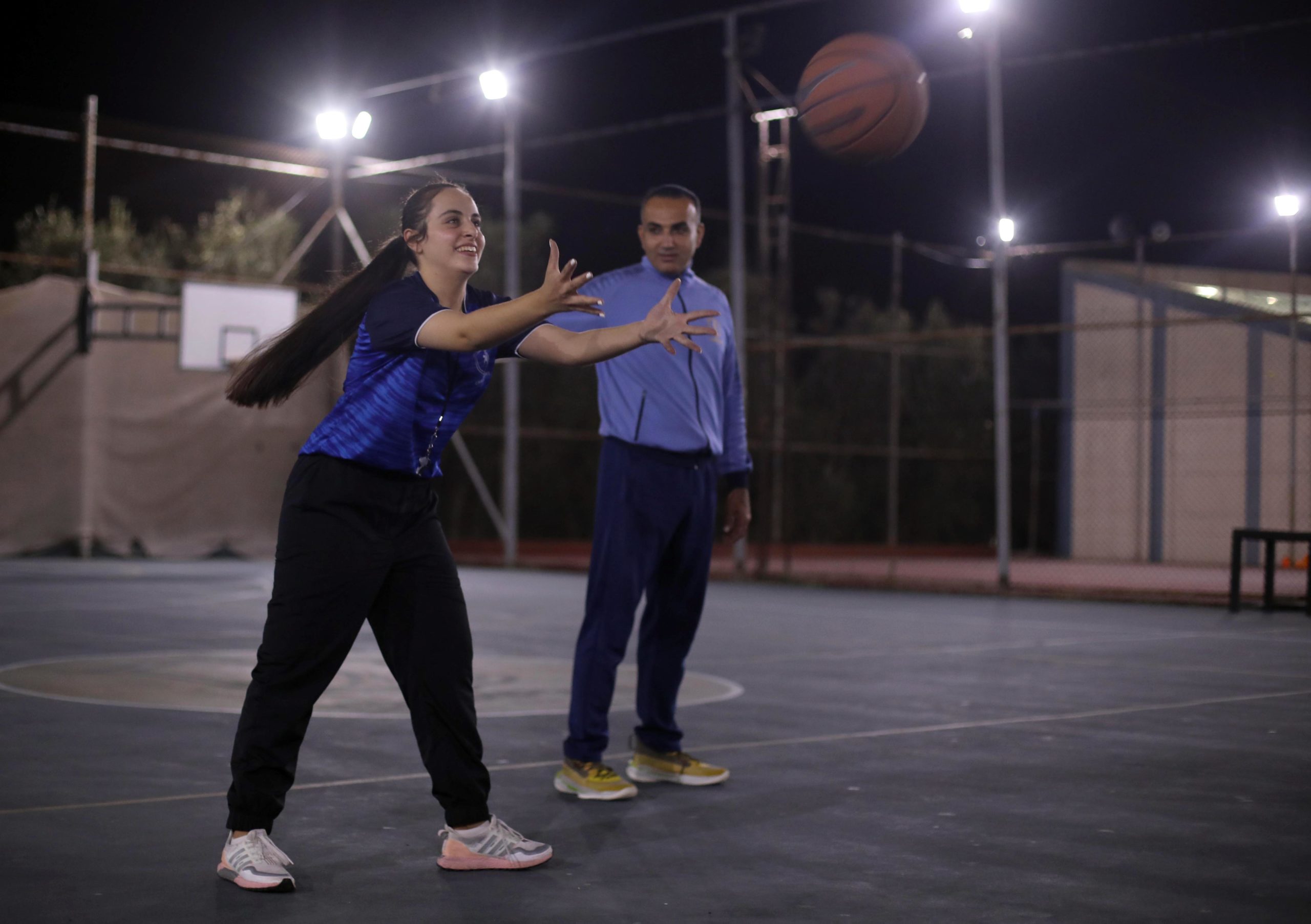
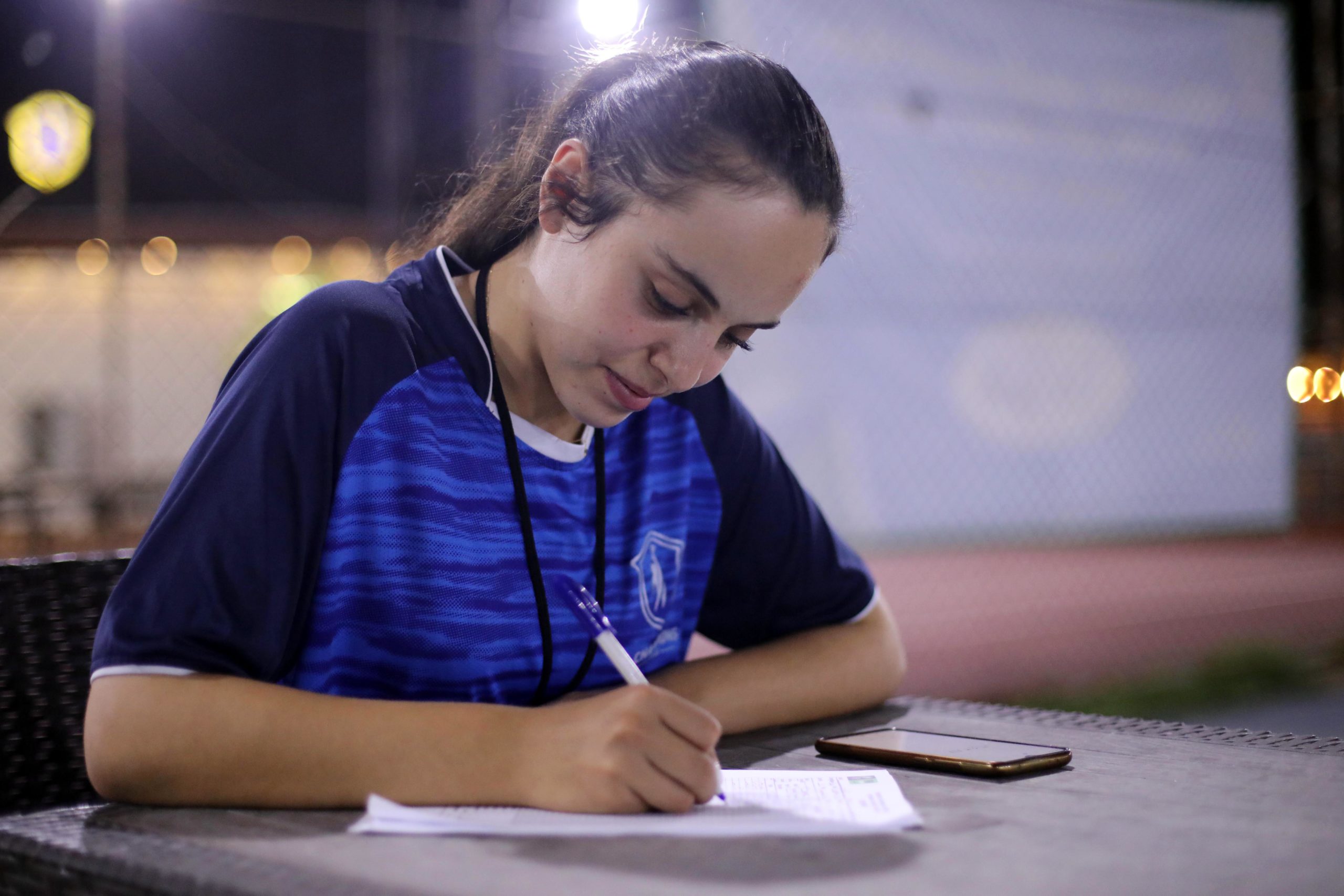
(All Photos: Mahmoud Ajjour, The Palestine Chronicle)
“Terror” designation of rights organizations should not deter US-based activism

Israel’s designation of six Palestinian rights groups as “terrorist” should not deter pro-Palestine solidarity groups in the US.
Dominick SokotoffZUMAOmar Zahzah and Nadya Tannous -25 November 2021
It was a move quite aptly characterized as “authoritarian and repressive” by Palestinian poet and writer Mohammed El-Kurd in The Nation.
On 19 October, the Israeli settler-colonial state designated six Palestinian human rights groups as “terror organizations.”
At the time, Israeli Defense Minister Benny Gantz claimed that Addameer, Al-Haq, Defense for Children International - Palestine, the Bisan Center for Research and Development, the Union of Palestinian Women’s Committees, and the Union of Agricultural Work Committees are tied to the Popular Front for the Liberation of Palestine (PFLP.)
But recent reporting in +972 Magazine revealed that the so-called “evidence” behind Gantz’s claim was based on unsubstantiated testimonies, possibly obtained through torture, and that these testimonies connected the six Palestinian organizations to the PFLP by way of decidedly non-militant activities like … er … poetry classes.
As Yuval Abraham, Oren Ziv and Meron Rapoport write: “In fact, contrary to the Israeli Defense Ministry’s claims, the dossier did not provide a single piece of evidence proving the six organizations diverted their funds to the PFLP or to violent activities.”
Then, on 16 November, an Israeli military court refuted Gantz and Foreign Minister Yair Lapid’s claim that a Spanish woman convicted of fundraising for the PFLP was in any way tied to the six organizations. Israel had intended to use this case as evidence validating Gantz’s designation.
Her lawyers wrote to the court that “regrettably, the court and military prosecutors became accomplices, whether knowingly or by closing their eyes, to a trick” and that Gantz and Lapid’s statement put their client in jeopardy of criminal prosecution in Spain as an activist in a group Haaretz referred to as a “terror organization.”
Threadbare but serious
Yet as laughable as the Zionist state’s threadbare case may be, there is a colonial utility and logic behind this latest assault on Palestinian efforts to defend themselves.
Elsewhere in these pages, Ali Abunimah and Maureen Clare Murphy report that some of the six targeted groups have cooperated closely with the International Criminal Court in its war crimes probe in the West Bank and Gaza.
“Gantz’s conduct may come under ICC scrutiny as he twice perpetrated major massacres of Palestinians in the Gaza Strip, as army chief of staff in 2014, and as defense minister earlier this year, when he vowed that ‘no person, area or neighborhood in Gaza is immune.’”
In other words, this could be a preemptive move on Gantz’s part to shirk accountability for slaughtering Palestinians. Abunimah and Murphy further note that criminalizing these organizations is a way for Israel to undermine their international funding and to deter broad-base fundraising.
The designation also facilitates Israel’s ongoing colonization of Palestinian land. As Zena Agha argues in a recent op-ed for the New York Times: “The effective criminalization of Palestinian institutions and the expansion of the settlements are two sides of the same coin.”
Agha adds: “The goal is clear: to silence the independent monitoring of Israel’s human rights violations that stand between total annexation of the occupied West Bank and international accountability … It will be harder to hold Israel to account if some of the most important Palestinian rights organizers are silenced, weakened or eliminated.”
And repressing organizations like Defense for Children International - Palestine allows Israeli occupation forces to continue killing Palestinian children like Muhammad Amjad Dadas with impunity.
Even more alarming, while the declaration initially only applied to the 1948 territories – Israel’s boundaries before its 1967 occupation of the rest of historical Palestine – five of the six organizations have since been declared illegal in the West Bank. (The Union of Agricultural Work Committees had already been declared to be illegal in the West Bank as of January 2020).
This limits the scope of their operations even more.
Jamil Dakwar, director of the human rights program at the American Civil Liberties Union (ACLU), tweeted this is a move that makes it possible for Israel “to close their offices and subject their staff to criminal sanctions as well as administrative detention.”
On 8 November, several human rights organizations, including Human Rights Watch and 7amleh - The Arab Center for the Advancement of Social Media, released a statement condemning the use of Pegasus spyware to infect cellphones of six Palestinian human rights defenders, three of whom currently work for organizations targeted by Gantz’s designation. These revelations were made by Front Line Defenders and corroborated by Citizen Lab and Amnesty International.
Furthermore, The Washington Post recently released a critical report outlining a massive Israeli surveillance program in the West Bank. The Israeli military, according to the article has developed a massive facial recognition initiative that uses smartphones and cameras to spy on Palestinians en masse.
The program involves a technology called Blue Wolf that uses smartphones to photograph Palestinians’ faces and match them against a database exhaustively compiled by occupation soldiers.
The number of Palestinians photographed is unknown but reportedly runs into the thousands. Former Israeli soldiers, according to The Washington Post, attest that Blue Wolf’s expansive database is a modified version of another database called Wolf Pack, which “contains profiles of virtually every Palestinian in the West Bank, including photographs of the individuals, their family histories, education and a security rating for each person.”
Besides Blue Wolf, occupation forces installed face-scanning cameras in Hebron to identify Palestinians at checkpoints before an ID card is even presented. A network of closed-circuit television cameras provides real-time monitoring of the city’s inhabitants and is reportedly even able to see into homes.
Gantz’s edict is thus symptomatic of a wider pattern of Zionist repression and criminalization of Palestinians. It also reflects the tired, instrumentalized paranoia and weaponized fragility of colonial Zionist ideology, which strategically equates any and all criticism of Israeli policy or politics with “anti-Semitism.”
As Jonathan Cook writes, labeling “Palestinian human rights activists as ‘terrorists’ will serve the same goal as labeling western activists seeking to end Israel’s oppression of Palestinians as ‘anti-Semites,’ or labeling Jews acting in solidarity with Palestinians as ‘self-hating’ and ‘traitors’.”
Cook adds, “Israel will bundle all this supposed ‘hate’ into its existing narrative that it is facing a campaign from all sides to ‘demonize’ the only Jewish state in the world.”
International impact
However flimsy the evidence, and however transparently political the designation was in the first place, it could still have major international repercussions.
Yara Shoufani writes that the international risks for the targeted organizations include foreign governments deciding to follow Israel’s lead.
Specifically, Shoufani notes that if the US alone concedes, this could have disastrous implications for the organizations’ ability to access finances, given that “49 of the 50 largest banks in the world use the same ‘World-Check Risk Intelligence’ record.”
Fortunately, there has already been some international pushback: On 17 November, over 100 artists including Naomi Klein, Mark Ruffalo and Susan Sarandon signed a statement critiquing the designation.
That followed a 16 November open letter from more than 100 philanthropic institutions and individual donors denouncing “smear campaigns” against the six rights groups and urging governments around the world to pressure Israel to rescind the designation while allowing funding to reach its intended targets without hindrance.
Inside the US, some, including David May and Jonathan Schanzer with their op-ed in Newsweek – a publication which seems to be competing with The New York Times in its attempt to serve as unadulterated Israeli propaganda – argue that US-based organizations working on Palestinian rights should keep their distance from the targeted organizations.
But this is most likely an overestimation.
According to Liz Jackson, senior staff attorney at Palestine Legal, a legal rights group set up to support those promoting Palestine solidarity in the US, there is “no direct legal effect in the US based on the Israeli designation.”
This is so, Jackson told The Electronic Intifada, because these organizations have not been designated as “terrorist” organizations under US law and there is no credible evidence that they are agents of a designated organization.
US law prohibits support for the committing of “terrorist acts,” and organizations designated as “terrorist” organizations and their agents as designated by the US government (not the Israeli government).
We must note that the Palestinian human rights defenders in the six targeted civil society organizations are not designated as “terrorists” in the US.
However, these efforts abroad build from the same fearmongering and repression that has taken place in the US against Palestinian organizations. We are painfully aware of this legacy, not least with the unjust branding and retaliation against the Holy Land 5 for their humanitarian work and contributions to civil society and the abhorrent prison sentences allotted to their board members.
Do not waver
Zionist organizations in the US will continue to try to use this latest designation to delegitimize even more the work of organizations fighting for Palestinian liberation and freedom, regardless of US law.
Indeed, US Vice President Kamala Harris recently declared that singling out Israel is “anti-Semitism” in a speech to the Anti-Defamation League, a notoriously anti-Palestinian organization.
But there is an inherent contradiction at play here, given that pushing Israel to be held accountable to international standards has nothing to do with bigotry and in fact constitutes the exact opposite of singling out.
Consequently, while taking solace in the fact that advocacy for Palestinian freedom remains largely lawful, Zionists and Israeli proxies will try to expand the repressive measure and push for further circumventions of Palestine organizing and activism – as they have always done.
Yet activist support must not waver – even when it comes to donating to these organizations. Rather than succumbing to Israel’s attempted chill, we need to remember that nothing has changed under US law, and our support needs to remain steadfast, even increased at such a critical moment of colonial repression.
According to Jackson, Israel’s latest designation works to create multiple links in the chain of “alleged guilt by multiple degrees of association.”
In other words, Israel is attempting to substitute fearmongering in place of evidence. Zionist organizations will certainly seize on this designation to attempt new rounds of smear and harassment campaigns against people who support and work in coalition with these organizations.
“But this was true before,” Jackson concluded, “and our job is to continue to make sure that these and other Palestinian groups are not isolated, because they have protection in our solidarity and in our work to ensure that these designations are revoked, discredited and not replicated.”
As supporters of Palestine and those who support the pursuits of occupied peoples against their occupiers, activists can rise to the call to support these six Palestinian civil society groups at the very time when most needed. Each organization holds an important role in supporting freedom and liberation for Palestinian people and, as many have substantiated, they represent a critical block to the expansion of Israeli settlements and the colonization of land and resources.
In the face of fearmongering and criminalization by the Israeli state, it is important that all individuals dedicated to the total liberation of Palestine remain principled, steadfast and united.
Nadya Tannous is a community organizer and writer based out of the Bay Area.
Omar Zahzah is the education and advocacy coordinator for Eyewitness Palestine, as well as a member of the Palestinian Youth Movement and the US Campaign for the Academic and Cultural Boycott of Israel.
Could an Apple lawsuit mean the end of Israeli cybercriminals NSO?

The Apple store on Fifth Avenue on Black Friday in New York, U.S., on Friday, 26 Nov. 2021. [David 'Dee' Delgado/Bloomberg via Getty Images]
This week it emerged that Silicon Valley giant Apple is suing Israeli spyware maker NSO Group.
The creators of the iPad, the iMac, the iPhone and so many other iconic computer products announced that they had filed the suit so as to hold NSO "accountable for the surveillance and targeting of Apple users."I have covered the issue of NSO and its spyware Pegasus before in this column.
Pegasus is a powerful piece of software used to hack into smartphones. The phones are then effectively turned into weapons against their own users, after being totally hijacked. The phone can be operated remotely and all its contents stolen, even the camera and microphone being switched on at will.
NSO has sold this lucrative hacking service for millions of dollars to some of the world's most oppressive regimes, including Bahrain, Kazakhstan, Morocco, Saudi Arabia and the United Arab Emirates.
While NSO's PR department claims that its services are only used to combat crime and "terrorism," experts have time and time again detected Pegasus on the phones of journalists, dissidents, human rights activists and even politicians.
Apple is not the first US corporation to sue NSO. WhatsApp and its parent company Facebook (now rebranded as Meta) in 2019 launched a lawsuit against NSO. Several other major Silicon Valley companies have backed the suit.
It emerged in this summer that NSO's software was likely used to target mainstream journalists and establishment politicians in Europe, including French President Emmanuel Macron. He was among 14 world leaders included in the leaked list of numbers "of interest" to NSO Group clients.
READ: Israel is the world's leading exporter of cybercrime
The cumulative effect of all these revelations has now had a significant and concrete consequence. The US government earlier this month blacklisted NSO and one other Israeli cyber-mercenary company, Candiru. The two have carried out projects which aim "to maliciously target government officials, journalists, businesspeople, activists, academics and embassy workers," the US Department of Commerce said.
This means that NSO will no longer be able to buy products and services from US companies. Apple is also seeking in its new lawsuit to ban NSO from ever using its products again.
![A view of the entrance of the Israeli cyber company NSO Group branch in the Arava Desert on November 11, 2021 in Sapir, Israel. [Amir Levy/Getty Images]](https://i0.wp.com/www.middleeastmonitor.com/wp-content/uploads/2021/11/GettyImages-1236496546.jpg?resize=933%2C622&quality=85&strip=all&zoom=1&ssl=1)
A view of the entrance of the Israeli cyber company NSO Group branch in the Arava Desert on November 11, 2021 in Sapir, Israel. [Amir Levy/Getty Images]
To pile further woe on top of NSO's head, the credit rating Moody's this week downgraded the Israeli firm's credit rating, and announced that the company is at risk of defaulting on half-a-billion dollars worth of loans.
"The company has a relatively low share of recurring revenues and is, unlike many other software companies, highly dependent on new license sales which we believe can become increasingly difficult given the actions taken against NSO," Moody's said.
In other words, the new US sanction imposed against NSO means that the company is now finding it hard to secure new clients or raise new funding (and all the negative publicity resulting from journalistic exposure of its nefarious practices can't exactly be helping either).
Could we finally be seeing the beginning of the end for NSO Group and its cybercrime racket? That's by no means yet certain. But it's certainly possible.
While the permanent closure of NSO Group would be a welcome development, there is a far wider problem here. NSO is only one of many such cyber-crime outfits which have the Israeli government's official stamp of approval.
READ: Israel reduces cyber technologies sales amid NSO scandal
The software and services NSO develops are rightly classified as cyber weaponry, and they are officially licenced for export by the Israeli government itself.
It's unknown just how many such mercenary Israeli spying and cybercrime companies there are, but those we know about are highly likely to be the tip of the iceberg. The fact I'd never even heard of Candiru before the US government blacklisted it alongside NSO this month is testament to that.
There is a whole raft of these criminal entities which are pushed by Israel, such as Black Cube, the Israel mercenary "intelligence" firm perhaps most notable for being hired by disgraced Hollywood producer Harvey Weinstein to spy on his rape and sexual assault victims in an attempt to intimidate them from testifying against him.
After his conviction, Weinstein was thankfully sent to jail.
When will NSO and Black Cube executives be sent to jail? Unfortunately, we could be waiting a long time for that.
A third case of the Omicron variant has been confirmed, with contact tracing now underway in Westminster and in Essex and Nottingham.
As the government steps up efforts to delay the spread of the new strain, it’s also confirmed that secondary school pupils in England will need to wear masks in communal areas.
The Health Secretary Sajid Javid has said that with the new measures being put in place, families should plan Christmas ‘as normal’.
Omicron is the new COVID kid on the block: five steps to avoid, ten to take immediately
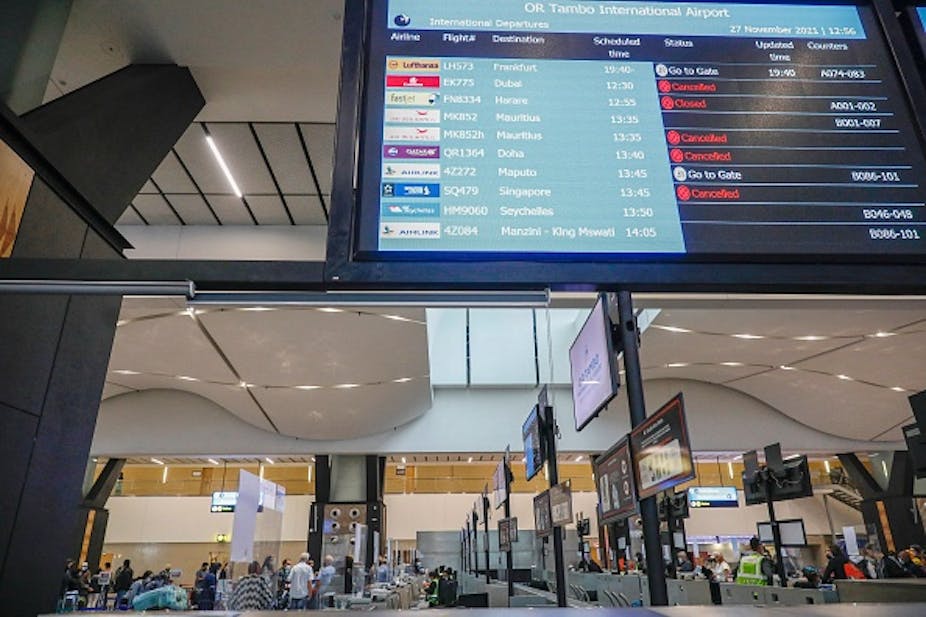
What not to do: ban travel. Scenes at South Africa’s OR Tambo International airport after the first flight bans were announced. Phill Magakoe / AFP via Getty Images
November 27, 2021
South Africa reacted with outrage to travel bans, first triggered by the UK, imposed on it in the wake of the news that its genomics surveillance team had detected a new variant of the SARS-CoV-2 virus. The Network for Genomics Surveillance in South Africa has been monitoring changes in SARS-CoV-2 since the pandemic first broke out.
The new variant – identified as B.1.1.529 has been declared a variant of concern by the World Health Organisation and assigned the name Omicron.
The mutations identified in Omicron provide theoretical concerns that the variant could be slightly more transmissible than the Delta variant and have reduced sensitivity to antibody activity induced by past infection or vaccines compared to how well the antibody neutralises ancestry virus.
As vaccines differ in the magnitude of neutralising antibody induced, the extent to which vaccines are compromised in preventing infections due to Omicron will likely differ, as was the case for the Beta variant.
However, as vaccines also induce a T-cell response against a diverse set of epitopes, which appears to be important for prevention of severe COVID, it is likely that they would still provide comparable protection against severe Covid due to Omicron compared with other variants.
The same was observed for the AstraZeneca vaccine. Despite not protecting against the mild-moderate Beta Covid in South Africa, it still showed high levels of protection (80% effective) against hospitalisation due to the Beta and Gamma variants in Canada.
In view of the new variant, there are a few steps that governments shouldn’t be taking. And some they should be taking.
What not to do
Firstly, don’t indiscriminately impose further restrictions, except on indoor gatherings. It was unsuccessful in reducing infections over the past 3 waves in South Africa, considering 60%-80% people were infected by the virus based on sero-surveys and modelling data. At best, the economically damaging restrictions only spread out the period of time over which the infections took place by about 2-3 weeks.
This is unsurprising in the South African context, where ability to adhere to the high levels of restrictions are impractical for the majority of the population and adherence is generally poor.
Secondly, don’t have domestic (or international) travel bans. The virus will disseminate irrespective of this – as has been the case in the past. It’s naive to believe that imposing travel bans on a handful of countries will stop the import of a variant. This virus will disperse across the globe unless you are an island nation that shuts off the rest of the world.
The absence of reporting of the variants from countries that have limited sequencing capacity does not infer absence of the variant. Furthermore, unless travel bans are imposed on all other nations that still allow travel with the “red-listed” countries, the variant will directly or indirectly still end up in countries imposing selective travel bans, albeit perhaps delaying it slightly.
In addition, by the time the ban has been imposed, the variant will likely have already been spread. This is already evident from cases of Omicron being reported from Belgium in a person with no links to contact with someone from Southern Africa, as well as cases in Israel, UK and Germany.
All travel bans accomplish in countries with selective red-listed countries is delay the inevitable. More could possibly be accomplished by rigorous exit and entry screening programmes to identify potential cases and mandating vaccination.
Third, don’t announce regulations that are not implementable or enforceable in the local context. And don’t pretend that people adhere to them. This includes banning alcohol sales, whilst being unable to effectively police the black market.
Read more: The hunt for coronavirus variants: how the new one was found and what we know so far
Fourth, don’t delay and create hurdles to boosting high risk individuals. The government should be targeting adults older than 65 with an additional dose of the Pfizer vaccine after they’ve had two shots. The same thing goes for other risk groups such as people with kidney transplants, or people with cancer and on chemotherapy, people with any other sort of underlying immuno-suppressive condition.
South Africa shouldn’t be ignoring World Health Organisation’s guidance which recommends booster doses of high risk groups. It should de-prioritise, for the time being, vaccinating young children with a single dose.
Fifth, stop selling the herd immunity concept. It’s not going to materialise and paradoxically undermines vaccine confidence. The first generation vaccines are highly effective in protecting against severe COVID-19, but less predictable in protecting against infection and mild COVID due to waning of antibody and ongoing mutations of the virus. Vaccination still reduces transmission modestly, which remains of great value, but is unlikely to lead to “herd-immunity” in our lifetimes.
Instead we should be talking about how to adapt and learn to live with the virus.
There is also a list of things that should be considered in the wake of the Omicron variant, irrespective of whether it displaces the Delta variant (which remains unknown).
What to do
Firstly, ensure health care facilities are prepared, not only on paper – but actually resourced with staff, personal protective equipment and oxygen, etc.
There are 2000 interns and community service doctors in South Africa waiting for their 2022 placement confirmation. We cannot once again be found wanting with under-prepared health facilities.
Read more: Top scientist: why South Africa shouldn't be giving 12-17 year olds COVID shots -- now
Provide booster doses of J&J or Pfizer to all adults who received a single dose J&J. It’s needed to increase protection against severe COVID. A single dose of the J&J vaccine reduced hospitalisation due to Delta variant in South Africa by 62% in South African healthcare workers, whereas two doses of AZ and mRNA vaccines in general had greater than 80%-90% protection against severe disease from the Delta variant.
Studies confirm a two dose schedule of the Johnson & Johnson vaccine is superior in protecting against hospitalisation than a single dose. And if you want durability of protection, you need to boost, which can be done with another dose of Johnson & Johnson or a dose of mRNA vaccine.
The evidence is clear that the type of immune responses from a heterologous approach of AZ or JJ followed by a mRNA vaccines such as Pfizer/Biontech induces superior neutralising and cell mediated immune responses than two doses of the non-replicating vector vaccines.
Thirdly, implement vaccine passports for entry into any indoor space where others gather, including places of worship and public transport. Vaccination might be a choice currently, however, choices come with consequences. Even if vaccines only reduce transmission modestly, over and above the infections they prevent, a breakthrough case in a vaccinated individual poses less risk of transmission to others than infection in an unvaccinated and previously uninfected individual.
Fourth, continue efforts at reaching out to the unvaccinated and under-immunized. This should include the use of pop up facilities where people are likely to gather and other targeted community outreach programs.
Fifth, immediately boost high risk groups older than 65 and others who have immunosuppressive conditions. The primary goal of vaccination therefore needs to be on reducing severe disease and death. This requires targeted strategies on who to prioritise.
Sixth, encourage responsible behaviour to avoid re-imposing alcohol and other restrictions to punish all due to irresponsibility on part of a minority.
Seventh, monitor bed availability at regional level to help decide on regional action to avoid overwhelming of facilities. Higher levels of restrictions need to be tailored for when we expect overwhelming of health facilities. As hospitalisation usually lag behind community infection rates by 2-3 weeks, keeping an eye on case rates and hospitalization rates could predict which facilities in which regions may come under threat.
This would allow for a more focused approach to imposing restrictions to relieve anticipated pressure on health facilities 2-3 weeks before expected. This will not change the total number of hospitalisations. But it will spread it out over a longer period of time and make it more manageable.
Eighth, learn to live with the virus, and take a holistic view on the direct and indirect effects of the pandemic on livelihoods. The detrimental indirect economic, societal, educational, mental health and other health effects of a sledge-hammer approach to dealing with the ongoing pandemic threatens to outstrip the direct effect of COVID in South Africa.
Ninth, follow the science and don’t distort it for political expediency.
Tenth, learn from mistakes of the past, and be bold in the next steps.
Subscribe to:
Posts (Atom)

